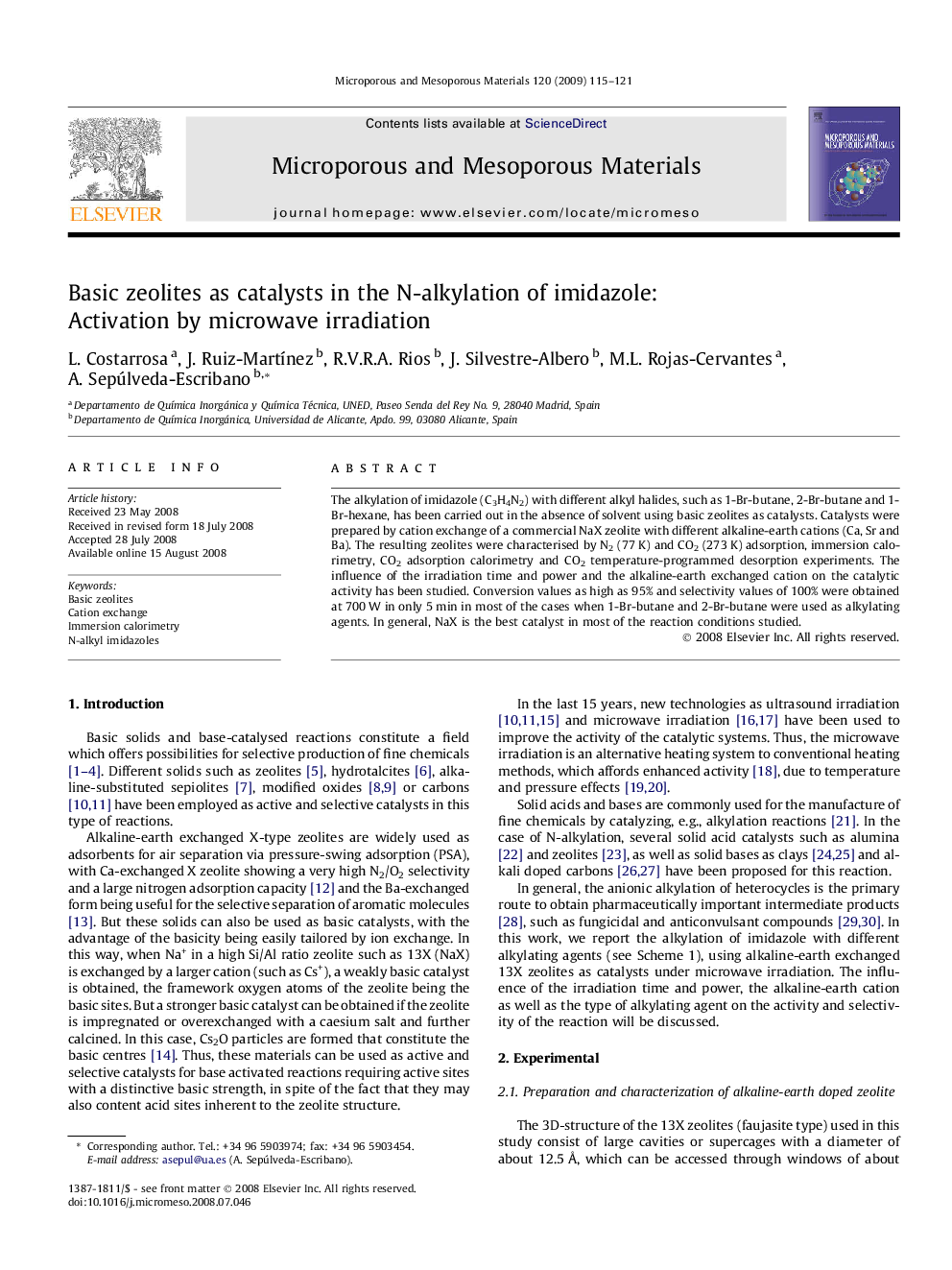| Article ID | Journal | Published Year | Pages | File Type |
|---|---|---|---|---|
| 76343 | Microporous and Mesoporous Materials | 2009 | 7 Pages |
The alkylation of imidazole (C3H4N2) with different alkyl halides, such as 1-Br-butane, 2-Br-butane and 1-Br-hexane, has been carried out in the absence of solvent using basic zeolites as catalysts. Catalysts were prepared by cation exchange of a commercial NaX zeolite with different alkaline-earth cations (Ca, Sr and Ba). The resulting zeolites were characterised by N2 (77 K) and CO2 (273 K) adsorption, immersion calorimetry, CO2 adsorption calorimetry and CO2 temperature-programmed desorption experiments. The influence of the irradiation time and power and the alkaline-earth exchanged cation on the catalytic activity has been studied. Conversion values as high as 95% and selectivity values of 100% were obtained at 700 W in only 5 min in most of the cases when 1-Br-butane and 2-Br-butane were used as alkylating agents. In general, NaX is the best catalyst in most of the reaction conditions studied.
